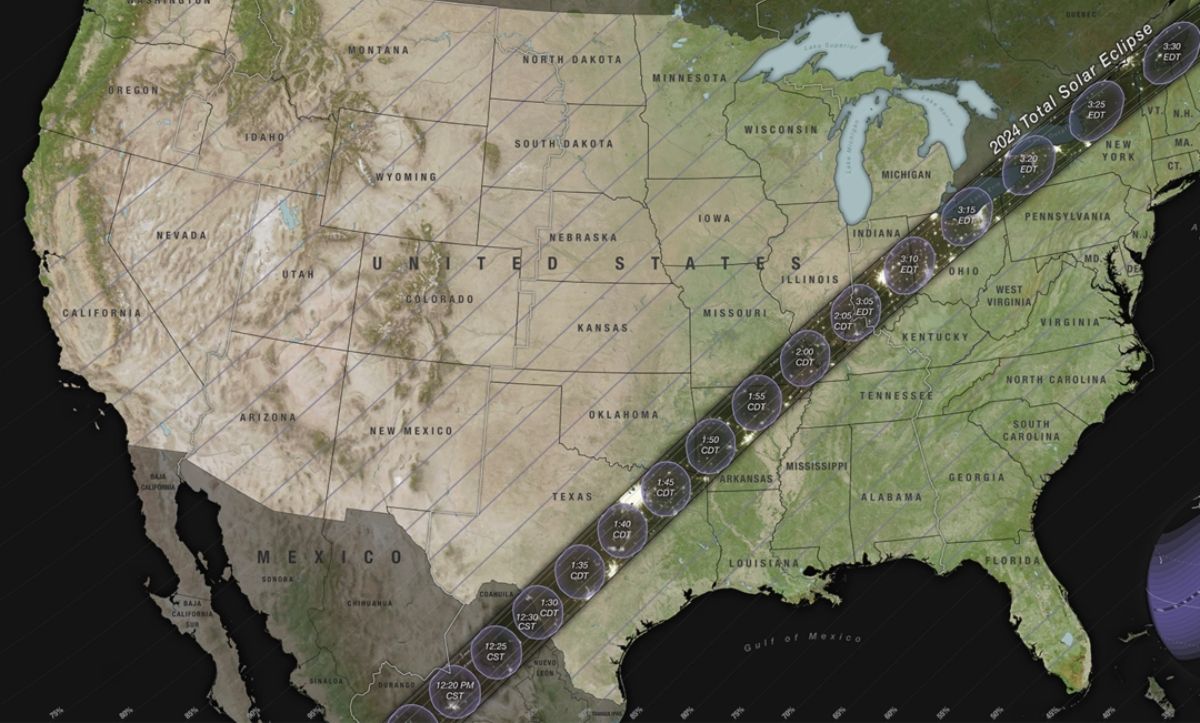News
FAA Issues Urgent Air Travel Warning for Total Solar Eclipse on April 8
Why is the National Guard being deployed for an eclipse?

This article originally appeared on The Epoch Times and was republished with permission.
Guest post by Caden Pearson
The Federal Aviation Administration (FAA) issued a warning on Thursday about potential disruptions in air travel surrounding the upcoming total solar eclipse on April 8.
The celestial event, set to cast a path of totality across 13 states, is anticipated to impact air travel operations before, during, and after the eclipse, according to the aviation agency.
The FAA indicated that the eclipse’s effects on U.S. airspace are anticipated between approximately 2:30 p.m. and 3:40 p.m. ET. At this time, some 32 million people in North America are expected to witness the rare event, which is anticipated to be the most-watched solar eclipse in history.
A total solar eclipse occurs when the new moon passes directly in front of the sun, completely blocking out sunlight and casting the moon’s shadow on the surface of Earth. The most recent total solar eclipse to happen on American soil was the Great American Eclipse in 2017.
A notice issued by the FAA to airmen emphasized potential impacts on air traffic and airports along the eclipse path from April 7 to April 10. Pilots and aviation personnel are advised to stay informed and prepared for possible disruptions.
In a statement, the FAA suggested that aircraft should ready themselves for potential airborne holding, reroutes, and departure clearance times that might be issued for all domestic IFR arrivals and departures during the eclipse.
Departing aircraft from airports along the eclipse path are “strongly encouraged” to coordinate their departure times as early as possible to assist fixed base operators with staging aircraft and alleviating ramp congestion.
“There may be a higher traffic volume than normal anticipated at airports along the path of the eclipse. Traffic should anticipate delays during peak traffic periods,” the FAA stated.
The agency cautioned that parking may be limited, particularly at small, uncontrolled airports. Delays with issuing IFR departure clearances might also happen.
“VFR departures may also expect delays for airborne pickup of IFR clearance within 50 NM either side of the path of the eclipse,” the FAA stated.
The eclipse will also impact or possibly prohibit aircraft from conducting practice approaches, touch-and-go operations, flight following services, and pilot training at airports during the event.
-

 Health2 days ago
Health2 days agoDr. McCullough Issues Chilling COVID Vaccine Forecast
-

 Featured3 days ago
Featured3 days agoThe Hidden Forces Behind the Anti-Israel Protests at Columbia University
-

 Health2 days ago
Health2 days agoHere We Go: Two New COVID Variants Named ‘FLiRT’ Spreading Across U.S.
-

 News2 days ago
News2 days agoOver 1,000 US Soldiers “Being Held HOSTAGE” in Niger – Matt Gaetz Releases Shocking Report



























